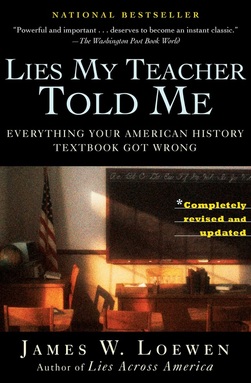 Dear Neighbor, I am writing to recommend you vote for Reverend Wally Vinovskis for the East Penn School Board next Tuesday. Choosing school board members is a tricky business because the best people for the job-- the people we most need guiding our district-- are not politicians or self-promoters and therefore often have a tough time in local elections. They are people who are generous of spirit, who listen, engage with others, and think independently. But they tend also to be the type of people who don’t spend much time tooting their own horn. Wally is one such person. And so I want to share with you some reasons you should vote for him that I suspect he is unwilling to tell you himself. First is his approach to solving problems. Wally tackles each new issue with an open mind. His remarks during school board deliberations demonstrate that he listens carefully to others and incorporates what he learns into his own thinking. But a willingness to listen and learn doesn’t mean he can’t also be independent. Last year Wally voted against supporting a Tax Increment Financing plan for the Hamilton Crossing development despite strong pressure from both within and outside the district, and in contrast to a majority of the board members who appointed him in the first place! This independence extends to his refusal to reduce the problems of the district to partisan ideological battles between Democrats and Republicans. After two years of working together, I still have no idea what political party he generally supports in national elections. And this is how it should be on the school board. The second reason you should vote for Wally is his approach to other people. He works with others collaboratively rather than combatively. When other members of the board express opinions over which he disagrees, I have witnessed him focus attention on whatever sliver of common ground he shares with them and work hard for the good of the district on those commonalities. He is a board member who actively looks for areas of consensus among diverse points of view, rather than a board member who tries to score points ‘winning’ an argument or insisting on having the last word. Wally’s attitude and approach to other people makes a difference in building up our community. A third reason to vote for Wally is his demonstrated commitment to the welfare of our public schools. Here is just a partial list of school initiatives in which he has given his time, energy, and expertise over many years: the Act 1 Tax Study Commission, the Steering Committee for the recently completed district strategic plan, the Emmaus High School Middle-States Accreditation Steering Committee, the Take Back Our Children Task Force, the Superintendent’s Parents’ Advisory Committee, the Coordinated School Health Committee, and of course the East Penn School Board. What this list doesn’t include is his more personal investment in the district, including his devotion to the EHS marching band booster club, and his nearly spotless record of attendance at Eyer, LMMS, and Emmaus High School music concerts each year. There are several other candidates that I will be voting for next Tuesday along with Wally Vinovskis: Ken Bacher, Chuck Ballard, Paul Champagne, and Rich Mathesz. They will all make excellent school board members. I have singled out Wally here because I’ve gotten to know him best over the last two years. He has been a superb board member, and it is my sincere hope our community takes advantage of his willingness to serve for four more years. Please vote. Sincerely, Ziad Munson PS: You may also want to take a look at the Voter Guide from the League of Women Voters for more information about all the candidates for school board.
0 Comments
 photo credit: stash via photopin (license) photo credit: stash via photopin (license) The U.S. Congress has a longstanding law prohibiting American politicians from taking campaign contributions from foreign governments and citizens. The law was affirmed unanimously by the Supreme Court as recently as 2012, and for good reason: Outside powers should not be able to choose our political leaders, or control them once they’re in office. I believe this same logic applies to our own local community as well. Local control of our schools depends on local control over our school board elections. If we don’t trust national leaders to pursue the common good while taking outside money, why should we trust local leaders to pursue our community’s best interests while taking outside money? Unfortunately, this is an issue we all face in the upcoming East Penn School Board elections next month. According to campaign finance reports, two candidates-- Chris Donatelli and Carol Allen-- have solicited some of their most significant campaign contributions from outside donors (their campaign finance reports are available here). Let me be clear: it is not illegal for a school board candidate to take money from outside the district. They are well within their rights to use these campaign dollars to influence the East Penn School Board race in any way they wish. But outside money in a non-partisan, community election is invariably targeted at scoring partisan political points that make up the ongoing dysfunction of Washington DC and Harrisburg, not the good of our community. Even more importantly, using outside money in a school board election is inconsistent with the principle of local control of schools, a principle that both Mr. Donatelli and Ms. Allen have repeatedly said is at the core of their campaign. I agree with Mr. Donatelli and Ms. Allen that local control is a principle worth defending. I therefore call on them to return the money they have received from outside our community, particularly the money received from outside politicians. Let’s let the people of East Penn decide who will best represent them on the school board, not outside funders. Following the money can’t tell you everything about a candidate. But it certainly can tell you something! I urge Ms. Allen and Mr. Donatelli to join the other five candidates in the local school board race-- Wally Vinovskis, Rich Mathesz, Paul Champagne, Ken Bacher and Chuck Ballard-- in refusing to take money from outside the district.  photo credit: Simon & Schuster photo credit: Simon & Schuster I saw a lot of pithy slogans and clever picture quotes on my social networks yesterday pointing out that the voyages of Christopher Columbus, which we celebrate with a national holiday, also brought with them evils like racism and genocide. Fair enough, and true enough. But one of the things I find tiring about these kind of online slogans, on subjects ranging from Columbus Day to gun control, abortion to celebrating Christmas, is that they so often reduce our rich and fascinating history to a few sound bites meant to “prove” that one view of the world is better than another point of view. With this in mind, let me recommend a book that strongly influenced my ideas about education when I read it more than fifteen years ago: Lies My Teacher Told Me, by James Loewen. The book is based on the author’s careful study of the twelve history textbooks most commonly used in American high schools, including all three textbooks being used in American Studies I and II at Emmaus High School. Based on this research, Lies My Teacher Told Me is a critique of the way American history is taught in our schools. The book devotes a chapter to Christopher Columbus and the European discovery of the Americas, showing how many of historical figures, events, and motivations that are most important to the story never appear in our textbooks. Students are left with a strong sense that Columbus was a hero, but very little sense of the actual history of that time. “When textbooks paint simplistic portraits of a pious, heroic Columbus,” Loewen concludes, “they provide feel-good history that bores everyone” (p.90). My favorite section of the book, however, is the focus on Helen Keller in the introductory chapter. I knew what most Americans do about Keller: She was a blind and deaf girl whose drive and determination allowed her to overcome these handicaps and bravely fight for womens’ right to vote. It turns out that all of that is true. But reading Loewen’s book was the first time I learned she was also a radical socialist who actively and publicly promoted communism in the United States for much of her adult life. My own history teachers in school never taught me that! As Loewen describes, “historians and filmmakers have disregarded her actual biography and left out the lessons she specifically asked us to learn from it. Keller, who struggled so valiantly to learn to speak, has been made mute by history” (pp.12-13). What makes Loewen’s book powerful, however, are not his corrections to the sanitized history presented in our school textbooks, but his clear explanation for why this problem matters to all of us. History textbooks, he argues, have been written to make historical figures into heroes and villains in the mold of Disney or video game characters: consistent, one-dimensional, and easy to understand. This telling of history is not only boring, but also dangerous because real heroes (and villains) never look like these caricatures. Helen Keller was heroic in many ways, but she also had many flaws-- like all of us, and like all heroes. Lacking knowledge of the richness, contradictions and tensions in historical figures makes it hard for students to identify heroes and villains in their own lives, or in themselves. Lies My Teacher Told Me has its weaknesses like any book. It can be repetitive at times, does not provide a comprehensive history of its own, and is too preachy for my tastes in some places. But overall it offers an engaging and eye-opening look at not only some central stories in American history, but also the many motivations and purposes that define our textbooks aside from teaching historical realities. You can pick up a copy for yourself at the Emmaus Public Library, the Lower Macungie Library, or order one from our district’s only independent bookstore, Let’s Play Books. Happy reading, and let me know what you think! |
Details
Categories
All
Archives
December 2017
|
